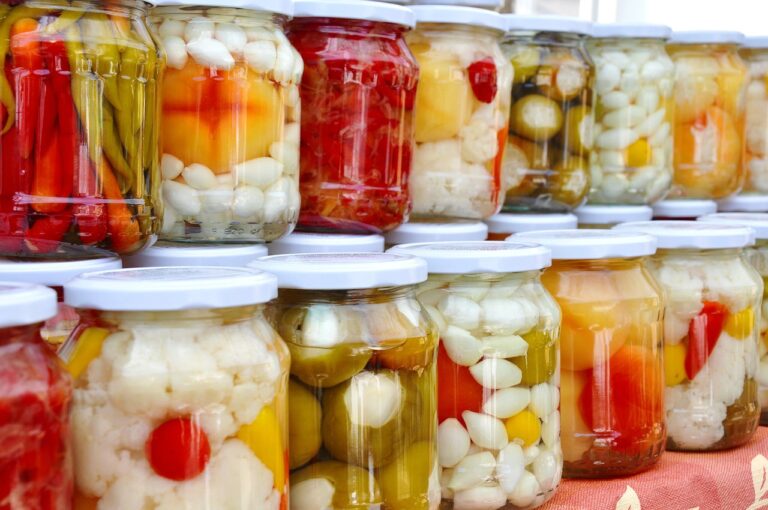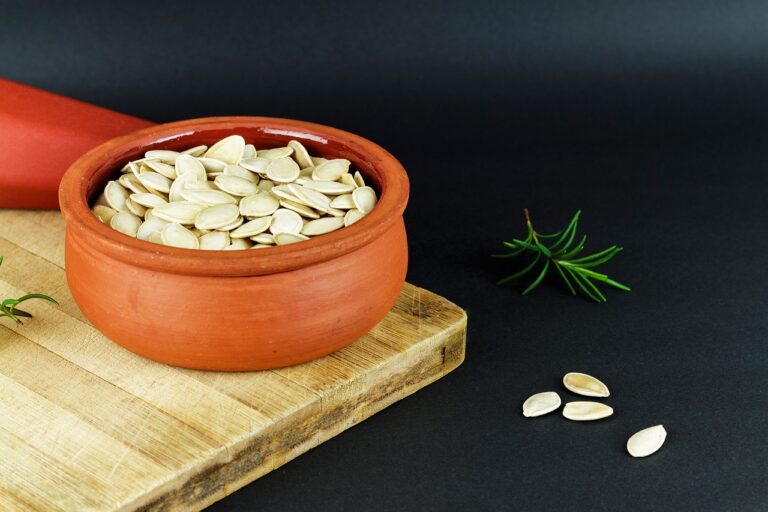10 Surprising Reasons Why You Are Constantly Craving Dairy

Dairy products, from the creamiest cheeses to the thickest yogurts, are some of the most craved foods worldwide. For many, the thought of a cold glass of milk or a scoop of ice cream can instantly bring comfort and satisfaction. But what drives these cravings? In this article, we’ll explore ten reasons why so many of us find ourselves yearning for dairy.
Why Am I Craving Dairy?
1. Calcium Content
Dairy products are a leading source of calcium, a mineral vital for bone health and various bodily functions. When our body lacks sufficient calcium, it might trigger cravings for foods that are rich in this mineral, such as dairy.
While other foods also contain calcium, dairy products often provide it in a form that’s easily absorbed by the body. Regularly consuming dairy can therefore help maintain proper calcium levels and reduce the likelihood of deficiencies which might lead to these cravings.
2. Creamy Texture
The creamy texture of many dairy products can be immensely satisfying. This texture can activate sensory pleasure centers in our brain, making us want more of that same sensation.
Mouthfeel plays a significant role in our food preferences. The creaminess of dairy can offer a unique and pleasurable experience that many people find hard to replace with other foods, leading to recurrent cravings.
3. Emotional Comfort
For many, dairy products are tied to comforting memories or emotions. Perhaps it’s a memory of drinking warm milk before bed or enjoying ice cream on a hot day. These positive associations can prompt cravings.
Emotional eating is common, and dairy can be a source of solace for many. Whether it’s the warmth of a cheese toastie or the sweetness of a milkshake, dairy can evoke feelings of comfort and security, making it a go-to craving during emotional times.
4. Fat Content
Dairy products contain fats that can be both filling and satisfying. Fat is an essential nutrient that provides energy and supports cell growth, and our bodies might crave it when in need.
The fats in dairy, especially those in products like cheese and full-fat milk, can induce feelings of fullness. This satiety, combined with the pleasing taste, can make dairy products particularly crave-worthy.
5. Sugar in Lactose
Lactose, the sugar found in milk, can be a source of quick energy. When our energy levels dip, we might find ourselves craving foods that provide a quick boost, and dairy can fit that bill.
While not as sweet as many other sugars, lactose can still provide the body with a gentle energy lift. For some, this makes dairy products like milk or yogurt an appealing mid-day snack or post-exercise refuel.
6. Versatility in Cooking
Dairy products are incredibly versatile in cooking and can be used in both savory and sweet dishes. This versatility can make us think of dairy when pondering meal or snack options.
Whether it’s a cheesy pasta dish, a creamy soup, or a yogurt parfait, dairy can elevate many recipes. Its adaptability in various culinary contexts can make it a frequently thought-of ingredient, leading to more cravings.
7. Cultural Associations
In many cultures, dairy products play a central role in traditional dishes and celebrations. These cultural ties can make dairy products more than just food; they become part of one’s identity and history.
From Italian cheeses to Indian yogurt-based drinks, dairy’s prominence in global cuisines can make it a cherished and frequently craved item for those with strong cultural associations to these foods.
8. Protein Content
Dairy products are a good source of protein, which is essential for muscle repair and growth. Post-workout or when feeling physically drained, our bodies might yearn for protein-rich foods, with dairy being one of the options.
The protein in dairy, especially in products like Greek yogurt and cottage cheese, can help in muscle recovery and provide sustained energy. This makes dairy a potential craving for those leading an active lifestyle.
9. Gut Health
Yogurt and other fermented dairy products contain probiotics, which can be beneficial for gut health. Recognizing these benefits, our bodies might occasionally crave dairy as a means to support digestive health.
A balanced gut flora is crucial for digestion and overall well-being. Regularly consuming probiotic-rich dairy products can contribute to a healthy gut environment, potentially leading to occasional dairy cravings for this reason.
10. Sensory Memory
Our senses have a strong memory. The smell, taste, and texture of dairy can remain etched in our minds, leading to cravings when we encounter similar sensory stimuli.
Perhaps the smell of melted butter reminds one of weekend pancakes or the tang of yogurt recalls a favorite childhood snack. These sensory memories can be potent triggers, making dairy products a frequent craving for many.
Craving Dairy After Workout
Many individuals report craving dairy products after engaging in strenuous workouts. One reason for this might be the body’s natural inclination to replenish lost nutrients and seek out protein, calcium, and sugars that can help in muscle recovery and energy restoration. Dairy products like milk and yogurt are rich in casein and whey proteins, which can aid in muscle repair and growth. Additionally, the carbohydrates present in dairy can quickly replenish glycogen stores, making dairy a post-workout option for many.
On the other hand, the cool and refreshing nature of many dairy products can be a soothing option after an intense sweat session. The sensation of consuming cold milk or yogurt can be refreshing and comforting after a challenging workout. Furthermore, the fat content in certain dairy products can provide satiety, making one feel full and satisfied, reducing the tendency to indulge in less healthy post-workout snacks.
Craving Dairy At Night
Craving dairy at night is not uncommon. Dairy products like milk contain tryptophan, an amino acid that is a precursor to the sleep hormone melatonin. Consuming dairy can potentially aid in promoting relaxation and inducing sleep. This could be a reason why many cultures have a tradition of consuming warm milk before bedtime.
However, cravings at night might also be tied to emotional needs. For some, dairy products evoke feelings of comfort and nostalgia, making them a go-to snack during moments of stress or anxiety. It’s also possible that nighttime cravings are simply a result of habit or boredom. It’s essential to recognize if the craving is a result of genuine hunger or an emotional response.
Craving Dairy During Period
It’s not unusual for women to experience specific food cravings during their menstrual cycle. Hormonal fluctuations can influence appetite and food preferences. The surge in progesterone before menstruation can stimulate an increased appetite and specific cravings. Dairy, being rich in calcium and magnesium, might help counteract certain PMS symptoms like mood swings and irritability.
Besides the nutritional aspects, dairy products like ice cream or cheese can serve as comfort foods. The creamy texture and rich taste can be emotionally satisfying, providing a sense of relief during uncomfortable periods. Listening to the body and understanding the root cause of such cravings is crucial to address them effectively.
Craving Dairy During Pregnancy
Pregnancy comes with a range of symptoms and cravings, and dairy is a common one. The body requires increased amounts of calcium during pregnancy to support the developing fetus, and dairy is a primary source of calcium for many. This could be a possible reason for the intensified desire for dairy products during this period.
Moreover, the fat content in dairy can help in absorbing fat-soluble vitamins which are essential during pregnancy. But while it’s okay to give in to these cravings occasionally, moderation is key. Excessive consumption can lead to unnecessary weight gain and other complications. It’s always best to consult with a healthcare provider about dietary needs during pregnancy.
Craving Dairy When Sick
When we’re ill, our body often signals its needs through cravings. Dairy products, with their creamy textures and mild flavors, can be soothing, especially for sore throats or when one’s appetite is reduced. The beneficial bacteria in yogurt might also aid in restoring gut health, especially after a bout of stomach upset.
However, it’s worth noting that some believe dairy can produce phlegm or thicken mucous, making it less ideal during colds or respiratory illnesses. While research on this is inconclusive, it’s essential to monitor one’s body’s reaction and make dietary choices accordingly.
Cravings Dairy Free Ice Cream
The rising awareness of lactose intolerance, veganism, and general health consciousness has led to an increased demand for dairy-free alternatives, including ice cream. Dairy-free ice creams, made from almond, coconut, oat, or soy milk, offer a creamy and delicious alternative without the lactose content or animal products.
The craving for dairy-free ice cream isn’t just limited to those with dietary restrictions. Many find these alternatives lighter and easier on the stomach while still satisfying their sweet tooth. The plethora of flavors and brands available ensures that there’s something for everyone.
How To Satisfy Dairy Craving
Satisfying a dairy craving doesn’t always mean indulging in high-fat or sugary dairy products. Opt for healthier versions, like low-fat yogurt, kefir, or cottage cheese. These options can offer the creaminess and taste without excessive calories. For those craving something sweet, a smoothie made with milk or yogurt, combined with fruits, can be a nutritious and satisfying option.
For individuals who cannot consume dairy due to allergies or intolerances, there are many dairy-free alternatives available. Almond, soy, or oat milk can replace regular milk in most recipes, ensuring that one doesn’t miss out on their favorite dishes.
How To Stop Craving Dairy
If you’re looking to curb dairy cravings, start by understanding the root cause. Is it emotional, nutritional, or habitual? Once identified, you can address the craving more effectively. Drinking water or herbal teas can sometimes alleviate cravings, as we often confuse thirst with hunger. Ensuring a balanced intake of calcium from other sources like leafy greens, tofu, or fortified foods can also reduce cravings.
Mindful eating and recognizing hunger cues are essential. When a craving strikes, wait for a few minutes, distract yourself, and then reassess. Sometimes, the urge diminishes on its own. If you still desire dairy, opt for a small portion to satiate the craving without overindulging.
Toddler Craving Dairy
Toddlers often go through phases of particular food preferences, and dairy might be one of them. Dairy products are a good source of calcium, protein, and fat – all essential for a growing child. However, while it’s good for toddlers to consume dairy, it’s crucial to ensure a balanced diet.
If a toddler seems excessively inclined towards dairy, it might be a comfort mechanism, or they might be enjoying the taste and texture at this stage of their palate development. It’s essential to introduce a variety of foods and textures to ensure they get all necessary nutrients and develop a varied taste preference.
Vegan Craving Dairy
For vegans who have given up dairy, occasional cravings are not uncommon. Dairy products have unique textures and flavors that plant-based alternatives might not always replicate entirely. However, the vegan market has seen a surge in dairy-like products made from almonds, cashews, soy, and more.
To address such cravings, vegans can experiment with these alternatives to find what satisfies their specific tastes. Nutritional yeast, for example, offers a cheesy flavor and can be a great addition to dishes. Cashews, when soaked and blended, can create a creamy texture similar to many dairy products.
Why Is My Body Craving Dairy
The body’s craving for dairy can arise from various reasons. Dairy is rich in essential nutrients like calcium, protein, and fats. A craving might indicate a deficiency or increased need for one of these nutrients. For women, hormonal fluctuations can also lead to increased cravings for specific foods, including dairy.
Psychologically, dairy products might be associated with comfort, warmth, or nostalgia. This can lead to cravings during times of stress, anxiety, or emotional upheaval. It’s essential to listen to one’s body and understand the underlying cause of the craving to address it most effectively.
Conclusion
Cravings for dairy, like all cravings, are a complex interplay of biological, emotional, and sensory factors. While it’s essential to listen to our bodies and understand our cravings, it’s equally vital to consume dairy in moderation, ensuring a balanced diet. The next time you find yourself yearning for that slice of cheese or a dollop of yogurt, you’ll have a better understanding of the myriad reasons behind that desire.






